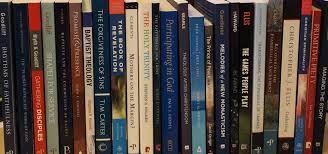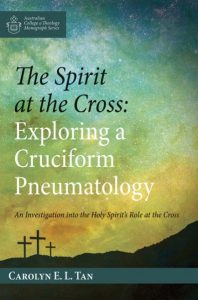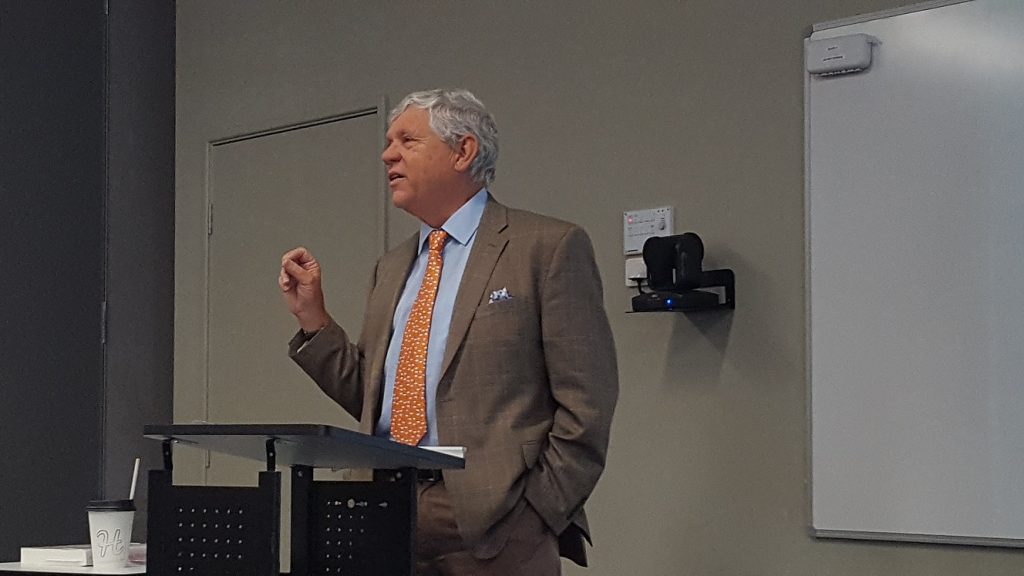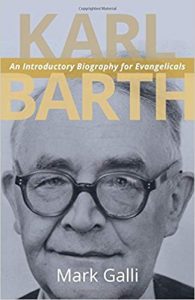 I wonder what the apostle Paul might make of the critical study of the Scriptures?
I wonder what the apostle Paul might make of the critical study of the Scriptures?
In my mind there is no doubt that this mode of study is a double-edged sword. Critical studies of Scripture have expanded our knowledge of the Bible, its backgrounds and contexts, its grammatical and rhetorical features, its varied interpretive possibilities, and so on, with the result that our understanding of it can now be better supported than perhaps ever before in history.
Yet critical studies of Scripture can so multiply theories of backgrounds and contexts, and ideas concerning interpretive approaches, that the unsuspecting reader is somehow set adrift, rudderless, in a great ocean of interpretive possibilities. In some cases this leads not to the strengthening of Christian faith and witness but to its diminution.
This is a very real risk faced by all seminarians as they commence their theological studies: will their studies build their faith and contribute to a robust life of faithful Christian discipleship, or will their study have a more corrosive effect, undermining their faith and perhaps lead them away from Christ and his church?
The problem has several aspects, notably the unique dynamics of the knowledge of God who is never an ‘object’ under our control. We know God only as God gives himself to be known by us. This knowledge is on God’s own terms, so to speak, and is a knowledge grounded in humble faith. Because of this we must be careful to distinguish between knowledge of Scripture or about Scripture, and knowledge of God; the one does not equate to the other.
It is not unusual for students to be thrilled in the knowledge of and about Scripture that they gain in their studies—truly a ground for rejoicing. But if this knowledge is merely intellectual development without a corresponding and deepening participation in and with God, its effect may be more to ‘puff up than to build up’ (1 Corinthians 8:1). Jesus’ words in John 5:39 are instructive: “You search the Scriptures because you think that in them you have eternal life; it is these that testify about me.” We study, therefore, not merely to establish doctrine, explore history, identify life principles, or find ideological support for a cultural—or even ‘Christian’—programme of action. The ultimate aim of the study of Scripture is to bear witness to, and lead us into a faith-relationship with, Jesus Christ.
Second, critical study introduces a ‘distance’ between the biblical text and the interpreter in which the reader ‘stands over’ the text, examining and questioning it, treating it as an artefact or an object of enquiry, weighing and evaluating its features, and assessing its various interpretive possibilities. In this process, the interpreter becomes the master and primary agent with respect to the Scripture. And it becomes possible that the habit of thought that one learns in critical study—this ‘distance’—may turn out to be also a controlling feature of one’s relationship with God. Indeed, sometimes this is the point, as Richard Bauckham (paraphrasing Søren Kierkegaard) has warned:
Biblical scholarship is the human race’s prodigious invention to defend itself against the New Testament, to ensure that one can continue to be a Christian without letting the New Testament come too close, or to ensure that one can continue not to be a Christian by not letting the New Testament come too close (Bauckham, James, 2; see my post on Kierkegaard and Christian Scholarship).
How might seminary students navigate this inherent danger in theological study? Some quite obvious responses come quickly to mind: by maintaining a consistent devotional life of prayer, praise, corporate worship, and Christian service; by applying different and complementary practices with respect to Scripture such as lectio divina, a slow, prayerful and meditative reading of the Bible in which we sit ‘under’ the Scripture, listening and waiting to see what it might speak to us; by retaining a sense of the Bible as Scripture, as holy, as inspired by God, and not merely as ‘text’; and by becoming at least as self-critical of one’s own presuppositions, purposes, and power, as one is of the tradition and others’ interpretations.
I began this post by asking about what Paul might make of critical study. Although I will not presume to answer that question, it arose for me as I reflected on his writings in 1&2 Timothy—although critical scholarship wonders whether in fact Paul is actually the author of these books! In these letters to his protégé Paul (let’s assume) continually exhorts Timothy to the preaching and teaching of sound doctrine, and to resist
A morbid interest in controversial questions and disputes about words, out of which arise envy, strife, abusive language, evil suspicions… (1 Timothy 6:4)
Rather, Timothy is to guard
What has been entrusted to you, avoiding worldly and empty chatter (“godless philosophical discussions” Jerusalem Bible) and the opposing arguments of what is falsely called ‘knowledge’—which some have professed and thus gone astray from the faith (6:20-21; cf. 2 Timothy 2:16-18).
He is to remember that
The goal of our instruction is love from a pure heart and a good conscience and a sincere faith. For some, straying from these things, have turned aside to fruitless discussion (1 Timothy 1:5-6).
He is also to
Remember Jesus Christ . . . according to my gospel. Remind them of these things, and solemnly charge them in the presence of God not to wrangle about words, which is useless and leads to the ruin of the hearers. . . . Refuse foolish and ignorant speculations, knowing that they produce quarrels (2 Timothy 2:8, 14, 23).
Timothy is reminded that “all Scripture is inspired by God and is profitable . . .” (3:16-17), and he is to “preach the word” for the time will come
When they will not endure sound doctrine; but wanting to have their ears tickled, they will accumulate for themselves teachers in accordance to their own desires, and will turn away their ears from the truth and will turn aside to myths (4:2-4).
Even though Paul is writing for a pastoral rather than academic context he has nevertheless quite accurately pinpointed the temptation and danger to which modern theological students are exposed. In formal theological study one will inevitably read and think through many different ‘disputes about words,’ and consider various ‘godless philosophies.’ This is as it should be, though hopefully we will never be enamoured with them. Nevertheless his words help the modern theological student ‘fight the good fight of faith’ (1 Timothy 1:18; 6:12) by reminding us of the goal of theological study, and by positing the gospel of Jesus Christ—as it has been mediated to us in the inspired Scriptures, and by the apostolic witness and tradition—as the canon within which we assess every teaching, and to which we adhere as a treasure that has been entrusted to us (2 Timothy 1:13-14).
Thus, at the beginning of a new semester, Remember Jesus Christ . . . according to my gospel.
 The new issue of Crucible has been published and is available online. The journal has re-focussed recently to become more related to practical theology and ministry. This issue has three major articles which concern issues of the relationship between ecclesiology and culture; intra-church, national and worship practice. To my mind, the article on the missional significance of the Eucharist looks particularly interesting.
The new issue of Crucible has been published and is available online. The journal has re-focussed recently to become more related to practical theology and ministry. This issue has three major articles which concern issues of the relationship between ecclesiology and culture; intra-church, national and worship practice. To my mind, the article on the missional significance of the Eucharist looks particularly interesting.





 Mark Galli entitles his recent book on Karl Barth an ‘introductory biography for evangelicals.’ As a biography it is a faithful though simplified rendering of the broader and deeper story found in Eberhard Busch’s Karl Barth: His Life from Letters and Autobiographical Texts (1976), upon which it draws heavily. With respect to his intended audience, Galli is writing specifically for evangelical Christians, not as a Barth specialist, but as an appreciative student and fellow-traveller.
Mark Galli entitles his recent book on Karl Barth an ‘introductory biography for evangelicals.’ As a biography it is a faithful though simplified rendering of the broader and deeper story found in Eberhard Busch’s Karl Barth: His Life from Letters and Autobiographical Texts (1976), upon which it draws heavily. With respect to his intended audience, Galli is writing specifically for evangelical Christians, not as a Barth specialist, but as an appreciative student and fellow-traveller.

 The new edition of the
The new edition of the